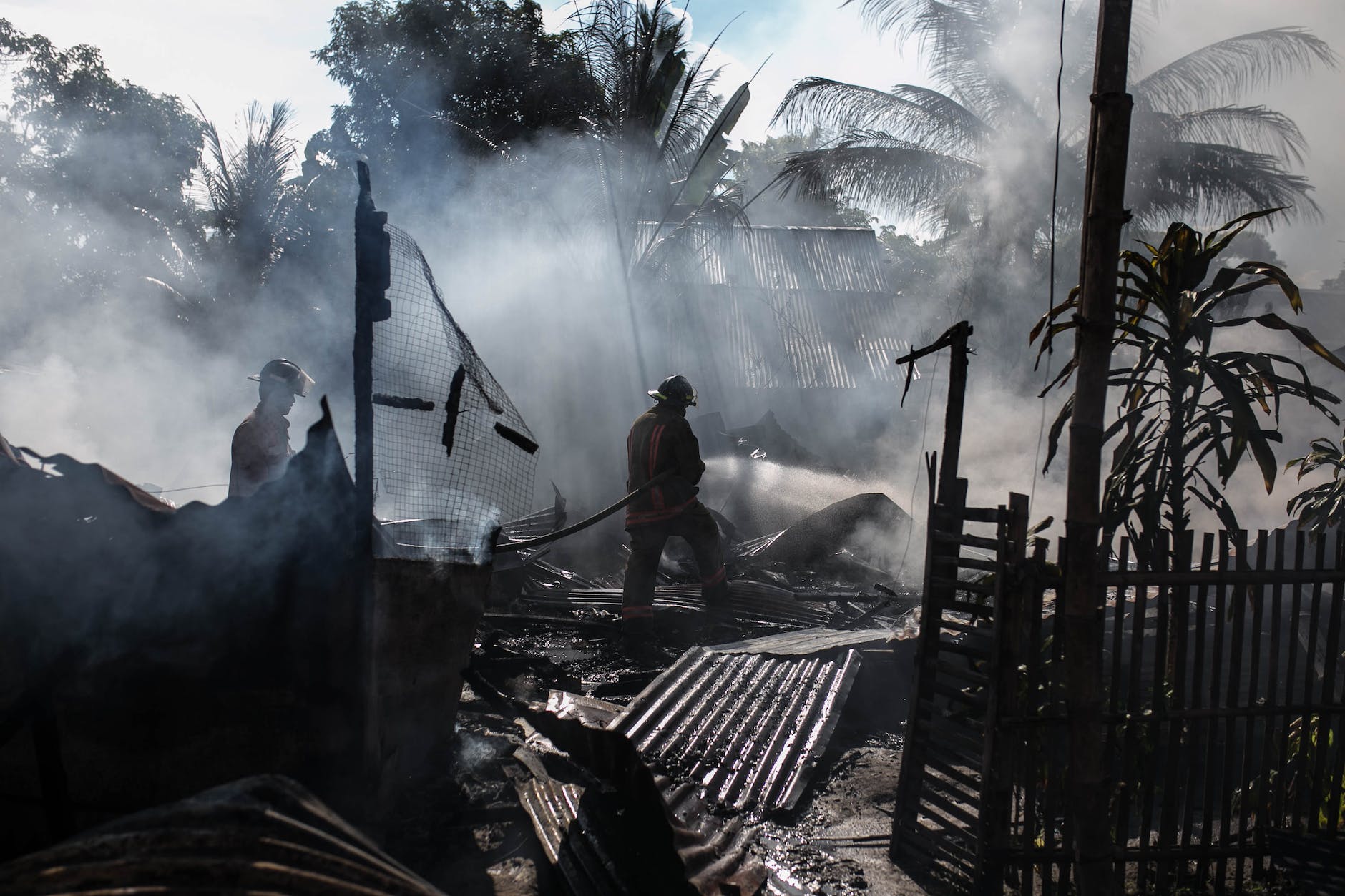How can homes decrease in value?
How can homes decrease in value? Several factors can cause a property’s value to plummet. These factors include proximity to highways, power lines, airports, and noisy areas. In some cases, even the presence of a train station can significantly reduce a property’s value. While many factors are beyond our control, some common causes of home decreases are listed below. Learn more about why specific neighborhoods may be losing weight.
Natural disasters
Finding evidence of natural disasters in your home’s history is not unusual. Floods, hurricanes, and tornadoes reduce the value of homes in the area. Cracks in the foundation and stains behind walls are often signs of flood risk. Consider purchasing insurance if you live in an area prone to natural disasters. However, remember that high insurance rates can mean a higher property value.

While natural disasters affect rich and developing countries, they tend to have more devastating effects in poorer nations. In the past 40 years, more than 3.3 million people died in disaster-related incidents. In Haiti, for example, a magnitude-7.0 earthquake killed 140,000 people and destroyed the city of Port-au-Prince. In Chile, a magnitude-9.1 quake claimed 500 lives but only had a limited impact on the country’s economy.
A household moving to a new location might consider the cost of home ownership compared to renting. However, they must also consider their needs and preferences for housing. For example, if they are moving to a new city, a household may delay purchasing a home if it is affected by severe natural disasters. The risk of catastrophe increasing the cost of owning a home and its consequences is likely to be permanent.
Regardless of the causes of a disaster, the effect on the home’s value gets determined by insurance policies. In some cases, insurance companies may increase their homeowner’s insurance rates to compensate for losses caused by the disaster. The higher insurance rates will make homeownership in an affected area more expensive, resulting in decreased demand and home values. So, even if a natural disaster does not damage your home, it can still decrease in value.
However, research on natural disasters and housing values are limited. It is also unclear whether such disasters affect the price of a house immediately after the event. Some studies have found that a catastrophe may change the risk preferences of homeowners, as they are more likely to buy a home in a flood zone than one in a disaster-prone area. The authors of this study found that the price drop for flooded houses is more significant than that for homes in unaffected areas.
Nasty Neighbors
Unlike bad floor plans or living next to a busy road, the situation with bad neighbors is not easily correctable. You can’t simply install better windows to keep out noise or fix a bad floor plan. Nasty neighbors can make a home less appealing to potential buyers or decrease its value. While a few bad neighbors may be unavoidable, they can lead to a loss of property value, especially if you need to sell your home quickly.
If your neighbors don’t take care of their property, your home’s value will decrease. While some buyers are more sensitive, they may not be bothered by an unsightly house. And while a poor neighbor may cause a slight decrease in property value, a cemetery is more likely to decrease a home’s worth significantly. This effect can magnify your home in a neighborhood with several sex offender homes.

Other things that negatively impact a home’s value are a noisy neighbor, dead yards, and junky cars. These are not exhaustive lists, but most neighborhoods have at least one of these problems. If you can’t live with them, find a new community. This way, you can avoid bad neighbors and increase your home’s value in the long run. If you’ve recently purchased a new home, you can also make it more attractive to buyers by removing bad neighbors.
An unpleasant neighbor next door will not only cause frustration for homeowners but can also lower their property value. Depending on the neighborhood, a dirty neighbor may reduce the value of a home by as much as 15%. A nearby power plant can also lower a home’s value by 4% to 7%. It’s important to note that the impact of these factors depends on the neighborhood and market conditions.
If you’re concerned about the value of your home, consider contacting your homeowner’s association. A home owner’s association can help resolve neighbor issues. Sometimes, The city may send an HOA representative to look at the point. It’s best to document any efforts to fix the problem. Alternatively, you can also take legal action against your neighbors. If your neighbors are selling drugs, you should contact the police immediately.
Low-quality schools
According to the Wall Street Journal, there is a stronger correlation between school quality and home values than once believed. However, it varies significantly among states, and this correlation may be lower than previously thought. The increasing availability of school data is one of the reasons for the correlation, and more families are choosing their neighborhoods based on the quality of the schools in the area. Information about school quality is now readily available on the Internet. Parents can easily compare school completion rates and determine what makes a home worth more or less.
A five-point increase in test scores is enough to boost the value of a home by 2.5 percent. Some buyers are willing to give up vaulted ceilings and additional bedrooms in exchange for a good school district. Additionally, some parents view the higher value of their homes as an investment in their children’s future. However, high-quality schools can be expensive, with a private enrollment costing $20k in some urban areas.
In a recent study, people paid $50 more per square foot for a home in a top-tier school district than for a home in a lower-ranked school district. This difference gets reflected in property taxes. In addition to the cost of living, buyers pay up to seven times more for a home in a good school district compared to the same-quality home in a low-performing one. Moreover, the National Bureau of Economic Research reports that public spending on schooling increases property values by more than $20.
High concentrations of minority and poor students in a district mean that teachers are less likely to be trained in current teaching methods. Consequently, teachers have fewer resources to devote to classrooms and are less likely to adopt a good curriculum. Furthermore, these schools often use substitute teachers, and class sizes are too large. Consequently, low-quality schools are a poor investment. So, if you’re looking to buy a home in a lower-income neighborhood, consider investing in a house with a high-quality public school.
External Obsolescence
Several factors can reduce the value of a home, including proximity to train tracks or highways and local zoning changes. The condition of the neighborhood is also critical, as it can influence the number of traffic-producing vehicles. For example, the constant rumbling noise might negatively affect a house near a train track. Trains also emit toxins that can impact the foundation of a home. An Entrepreneur magazine study found that properties near railroad tracks depreciated.
These factors include traffic patterns and increasing crime rates. If these factors are present, the property is less desirable. In addition to the increased traffic, it can also be affected by significant crime, making it less desirable for families to buy. While external obsolescence can gets dealt with, some circumstances may be out of the property owner’s control. For example, a neighborhood surrounded by busy roads or landfills may have a decreased property value over time.
In addition to the factors mentioned above, external obsolescence affects real estate. Intangible assets like plants and buildings can hold positive or negative value in the market but may have minimal value. The cost of repairs to the property can be more than the home’s value. It may be beneficial to view economic obsolescence from the perspective of a market participant to determine its real value.
There are two types of external obsolescence. They are economical and locational obsolescence. The former refers to the depreciation of a property due to outside factors. Such as a change in the local zoning. Environmental obsolescence occurs due to land use, economic growth, and social and political climate changes. These external forces are challenging to reverse and often can’t get controlled.
Economic obsolescence affects homes by changing the local economy. For instance, if a city’s sewage treatment plant shuts down, the real estate value in that area decreases. The same is valid for homes close to an airport. In addition to being unsafe, living near a bus stop could negatively impact the value of a property. Furthermore, economic obsolescence occurs because the government changes zoning laws, reducing the number of vehicles passing by the area.


1 thought on “How Can Homes Decrease in Value?”